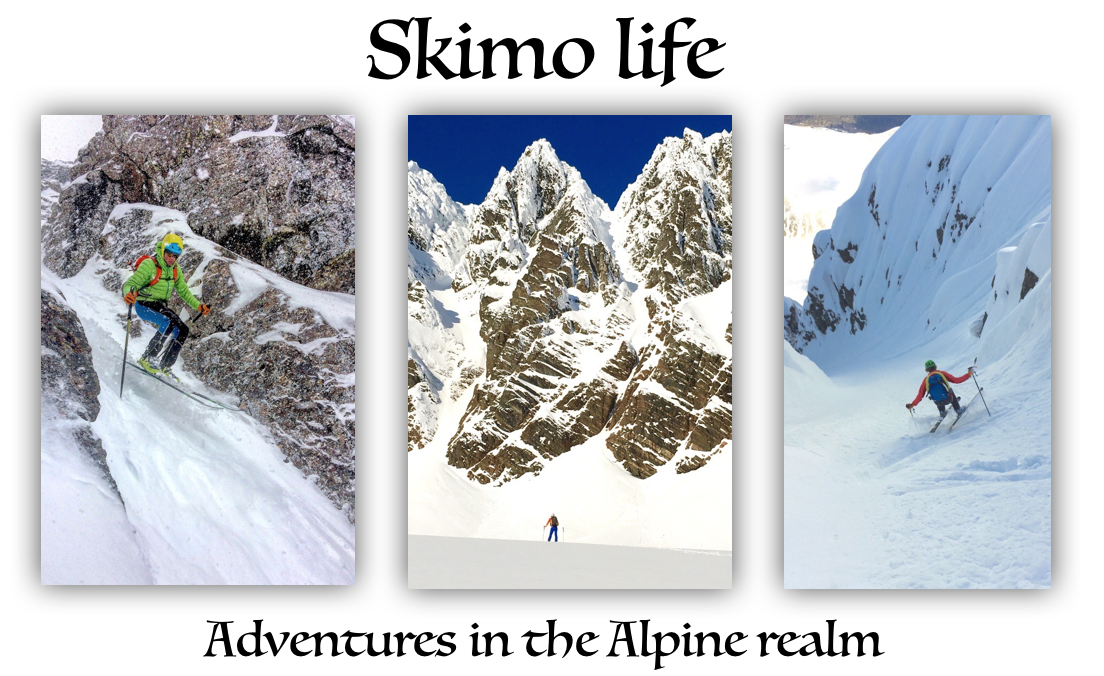Death Canyon to String Lake Trail Run
 Tuesday, September 20, 2011 at 12:36AM
Tuesday, September 20, 2011 at 12:36AM Dropping off Hurricane Pass into the South Fork of Cascade CanyonThis past Saturday I ventured out onto one of the area's classic trail loops, the Death Canyon to the South Fork of Cascade Canyon. This run climbs over 6,000 vertical feet in about 24 miles. It travels from the White Grass trailhead, past the Phelps Lake overlook, up to the Death Canyon patrol cabin, hangs a right up to Static Peak divide, summiting Static Peak, then down across the basin on the west side of the range, into Alaska Basin, over Hurricane Pass and finally down the South and Main Cascade drainages to the String Lake parking lot. We traversed an amazing amount of alpine terrain on mostly runnable trails.
I've been running for about 5 months now. I started out slowly, only running ten to twenty minutes at a go. Sensible and steady increases in volume coupled with thoughtful rest and recovery have allowed me to entertain these longer efforts. I have to say there is nothing quite like the feeling of getting to the end of a six or seven hour day in the mountains feeling relatively good running all the way to the end. I'm starting to understand this whole "ultra running" thing. I'm a long way from doing one of those crazy 100 milers, not sure I'll ever get to that level, but am seeing the attraction.
Phelps Lake overlookThe effort starts with a car shuttle to String Lake. Heading off from the Death Canyon trail head (aka. White Grass t.h.), the run starts out with a nice ten minute opener to the Phelps Lake overlook. The gradient is mellow here and is the perfect hors d'oeuvres for the day. Full recovery down the two switch backs follows and a gentle grade greets you as you enter Death Canyon proper. The steepness kicks up for the next 30 minutes and I found myself walking here and there through rocky sections.
At the 48 minute mark we hit the patrol cabin after some easy running following the top of the climb. Death Canyon patrol cabin
A right turn follows and it was nothing but uphill to the summit of Static peak nearly 90 minutes later. For me, this section was challenging to run. I walked a bit of it, taking pictures and keeping Kim in sight. There was a lot of bear scat around and I kept my eyes and ears peeled. I saw nothing.
Upper Death CanyonEventually, we gained a small pass with views to the east followed by more contouring and climbing to Static Peak divide. We took the short detour to the summit of Static since I had never been there before.
Static Peak summitIt was frigid and we didn't linger in the wind for long. Once back on the trail we took the exceedingly civilized descent down into the basin to the west. We detoured up to the head of Avalanche Canyon on a poorly maintained trail. We'd hoped to simply cut over to the start of the South Fork of Cascade but snow made the route impassable in running shoes.
The high alpine running perfection of Alaska BasinA descent down steep scree got us back on route. The running there is spectacular being mostly flat to gently rolling. Eventually we arrived in Alaska Basin and Sunset Lake. A steady grind up to Hurricane Pass followed with spectacular views of the Grand, Middle and South Tetons. From here it's over ten miles to the car, mostly downhill.
10 miles to goThe South Fork of Cascade is a beautiful drainage with lots of waterfalls and meadowed plateaus. Once in the main fork, the running is easy and wide open all the way to the horse trail before Jenny Lake.
The final section along Jenny LakeA final steep descent down the horse trail is followed by the last mile or so along the lake shore to String Lake trailhead. Six hours and 50 minutes later we were done. Although we ran most of the loop, our effort was relaxed as we lingered here and there. I think with concerted, steady effort and avoidance of the detour towards Avalanche Canyon, a sub-5:30 is possible for a capable trail runner. Doubt I'll get around to another go this season but this loop should be on every backcountry runner's list for a great day out. - Brian
Notes

About 24 miles
6,500 verts
6:50 casual
2 liters of water
10 Gu
4 packages of Chomps
 Brian |
Brian |  2 Comments |
2 Comments | 





Reader Comments (2)
Hello Brian,
I am a huge fan of your site. I just found it recently and have been soaking in the knowledge. Its funny because I moved to Idaho last year for grad school after living in Jackson for 3 years.
I have a question about training for long runs. I have been running for about 8 monthes now, and have been uping my milers to 18-20 milers, (up to 50 per week) in the last few weeks. I was training for a trail half marathon 2 weeks ago. The race went great, but ever since I have a pain on the side of my right knee. Quick internet searches have lead me to think its a possible IT strain. Its not to sore but still there, and I am planning a huge run, Seven devils loop (27 miles) for this weekend. I was wondering if you have any input on this pain and possible remidies. I am concerned that it is going to start killing me 20 miles out this weekend. Any thoughts or advise would be helpful.
Thanks,
Sam
Sam,
Thanks for reading. Glad you like the content. Tell your friends.
First of all, congrats on preparing for and pulling off a long run on pavement. Not something I savor but a worthy goal nonetheless. Unfortunately, and like you know as well as anyone, running on pavement is hard on the body. Firm surface coupled with mostly exactly the same motion step after step. Not a good combo. Stick to the dirt if you can. Lot's of trail racing out there to give you a goal if you need it.
Anyway, you mentioned ITBS so I assume that it's the outside of your knee that hurts. I think your hunch is a good place to start. Other choices are menicus tear and chondral bruise or other cartilage injury.
If you are younger than 30 with no other bad knee injury history, ITBS is likely. Time to be a smart runner and don't let this thing become a big deal by "running through the pain". If the Seven Devils loop run is important, you could dose up heavy on Ibuprofen for a couple of days (2,400 mg/day) and just do it. This may make it a bigger problem for longer, however. Make sure it's worth it.
Alternatively, you could just be smarter, do something that does not hurt until your knee gets better, get some body work, foam roll those IT bands and wait to heal.